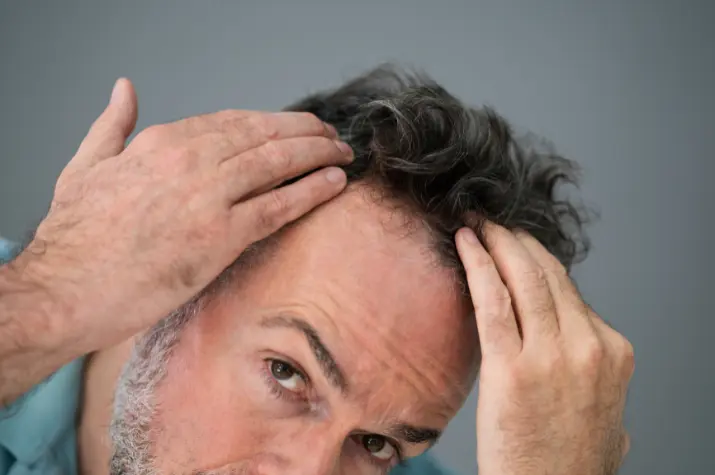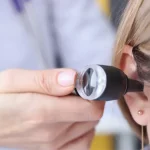
Hair loss is a common concern for many men, affecting self-esteem and confidence. Fortunately, there are various solutions and alternatives available to address this issue and restore a full head of hair.
In this article, we’ll explore some effective treatments and techniques for combating men’s hair loss, providing insights into the options available to those seeking to regain their hair and confidence.
Hair Transplant Surgery
Hair transplant surgery is a popular and effective option for men looking to restore their hairline and achieve natural-looking results.
During the procedure, hair follicles are harvested from areas of dense hair growth, typically the back or sides of the scalp, and transplanted to thinning or balding areas. This technique provides long-lasting results and can significantly improve the appearance of thinning hair or receding hairlines.
However, hair transplant surgery is not without its drawbacks. It can be expensive, requiring multiple sessions to achieve desired results, and may result in scarring or complications.
Additionally, not all men are suitable candidates for hair transplant surgery, as it depends on factors such as the extent of hair loss, the quality of existing hair follicles, and overall scalp health.
Medications and Topical Treatments
For men experiencing early stages of hair loss or seeking non-invasive treatment options, medications, and topical treatments may be beneficial.
FDA-approved medications such as minoxidil (Rogaine) and finasteride (Propecia) can help slow or stop hair loss and promote hair regrowth in some individuals.
These medications work by stimulating hair follicles, increasing blood flow to the scalp, and blocking the hormone responsible for hair loss.
In addition to medications, topical treatments such as shampoos, serums, and foams containing active ingredients like ketoconazole, caffeine, and saw palmetto may help improve scalp health and promote hair growth.
While these treatments may not be as effective as surgical options, they can be useful as part of a comprehensive hair loss prevention regimen.
Scalp Micropigmentation (SMP)

Scalp micropigmentation (SMP) is a non-surgical procedure that involves tattooing tiny dots on the scalp to replicate the appearance of hair follicles. This technique creates the illusion of a full head of hair, even in areas where hair growth is minimal or non-existent.
SMP is suitable for men with various types and degrees of hair loss, including those with receding hairlines, thinning crowns, and alopecia. One of the key benefits of SMP is its versatility and customization options.
Search “scalp micropigmentation near me” to find experienced SMP practitioners who can tailor the treatment to match your natural hair color, skin tone, and desired hairline shape, ensuring a seamless and natural-looking result.
Additionally, SMP is a relatively low-maintenance solution, requiring minimal downtime and post-treatment care.
Laser Therapy
Laser therapy is a non-invasive treatment option for men’s hair loss that utilizes low-level laser light to stimulate hair follicles and promote hair regrowth.
This technique is thought to increase blood flow to the scalp, improve cellular metabolism, and awaken dormant hair follicles, leading to thicker, fuller hair over time. Laser therapy can be administered through in-office treatments or portable devices designed for home use.
While laser therapy is generally safe and well-tolerated, results may vary from person to person, and multiple sessions may be required to achieve optimal results.
Additionally, laser therapy is most effective when used as part of a comprehensive hair loss treatment plan, including other interventions such as medications, topical treatments, and lifestyle modifications.
Lifestyle Modifications and Hair Care Practices

In addition to medical treatments and procedures, adopting healthy lifestyle habits and proper hair care practices can play a significant role in managing men’s hair loss.
Maintaining a balanced diet rich in essential nutrients such as vitamins A, C, D, and E, as well as iron, zinc, and omega-3 fatty acids, can support overall scalp health and hair growth. Regular exercise, stress management techniques, and adequate sleep are also important for maintaining optimal hair health.
Furthermore, practicing gentle hair care habits such as using mild shampoos, avoiding excessive heat styling and chemical treatments, and protecting the scalp from sun exposure can help minimize hair damage and prevent further hair loss.
By taking a holistic approach to hair health and incorporating lifestyle modifications into their routine, men can support healthy hair growth and maintain a full, thick head of hair as they age.
Conclusion
Men’s hair loss can be a distressing and challenging condition to navigate, but with the right knowledge and resources, it’s possible to address the issue effectively and regain confidence in one’s appearance.
From surgical options like hair transplant surgery to non-invasive treatments like scalp micropigmentation and laser therapy, there are various solutions available to meet the unique needs and preferences of individuals experiencing hair loss.
By exploring these options and working closely with qualified professionals, men can take proactive steps towards achieving a fuller, thicker head of hair and enjoying greater confidence and self-assurance in their daily lives.
About The Author:
Anne Kamwila is a freelance content writer and a digital marketer. She is passionate about writing about health, technology, and business-related guides, news, and books.




